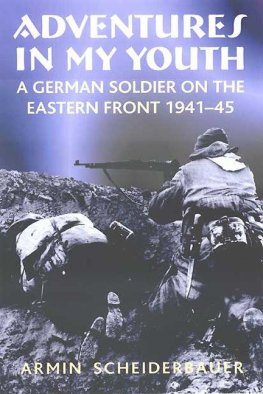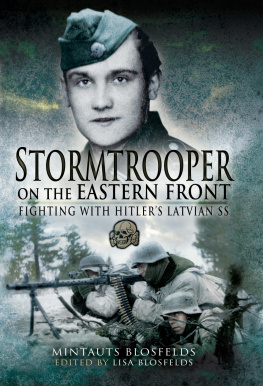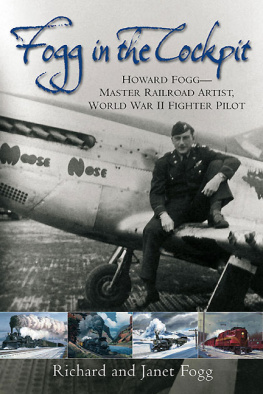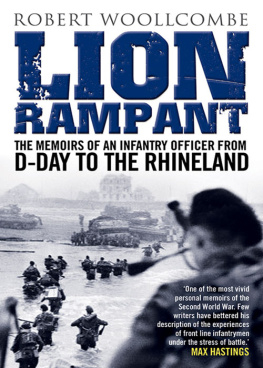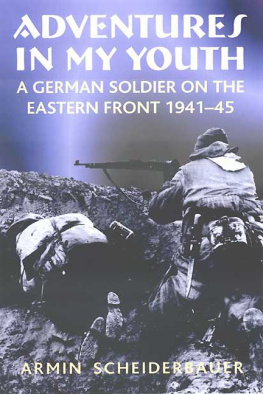Jack Swaab enlisted in the Royal Artillery on 10 September 1939. He kept a war diary from December 1942 until August 1945, seeing action in Tunisia, Sicily and Italy before becoming a forward observation officer in the North West Europe campaign. He was mentioned in despatches and awarded the Military Cross. Jack Swaab is married and has two sons. He lives in London.
For my family
FIELD
OF FIRE
DIARY OF A
GUNNER
OFFICER
J ACK S WAAB

First published in 2005
Paperback edition first published in 2007
The History Press
The Mill, Brimscombe Port
Stroud, Gloucestershire, GL 5 2 QG
www.thehistorypress.co.uk
This ebook edition first published in 2013
All rights reserved
Jack Swaab, 2005, 2007, 2013
The right of Jack Swaab to be identified as the Author of this work has been asserted in accordance with the Copyrights, Designs and Patents Act 1988.
This ebook is copyright material and must not be copied, reproduced, transferred, distributed, leased, licensed or publicly performed or used in any way except as specifically permitted in writing by the publishers, as allowed under the terms and conditions under which it was purchased or as strictly permitted by applicable copyright law. Any unauthorised distribution or use of this text may be a direct infringement of the authors and publishers rights, and those responsible may be liable in law accordingly.
EPUB ISBN 978 0 7524 9591 0
Original typesetting by The History Press
CONTENTS
LIST OF MAPS
FOREWORD
F or whom are diaries written? Are they personal records, only for the purposes of private recollection? Or do we secretly hanker for the day when our innermost thoughts and reflections will be read by others? And, if the latter, do we adjust what we say accordingly?
Jack Swaabs diaries raise these questions precisely because he asked them of himself. They are so well written, so full, and not infrequently so lyrical as to suggest that he had an audience in mind. When one of his many correspondents during the war suggested that his letters be published, he liked the idea. The end of the Second World War found him penning short stories. And yet, at the beginning of his active service, he was recording his contempt for some comrades in terms that he would later repent, and maintaining liaisons with girl friends that were not just successive but at least as this story begins simultaneous. Anybody who was seriously looking to posterity might have been more circumspect. The fact that Jack Swaab was not is what makes Field of Fire such an immediate and powerful record, one of the great personal narratives of the experience of war to come out of the British Army in the years 193945.
Edmund Blunden prefaced Undertones of War, his reflections on the western front in a previous war, with the thought that no one would read it or would understand it who had not gone the same journey. Swaab, consciously or unconsciously, reflected Blunden when he wrote in 1943, can anybody who has not travelled these roads be expected to understand that? That was not the horrors of war, which those who are caught up in them often do not feel need specific description, but the restorative powers of a cup of tea (on which score these pages provide plenty of testimony). Swaab may not have cited Blunden but he refers to Siegfried Sassoon and quotes Rupert Brooke and Julian Grenfell. It may be that the proximity to the literary legacy of what was still to his generation the Great War was what kept the authors of the Second World War silent for so long. Blunden published Undertones of War ten years after the event. With one or two exceptions the classic personal accounts of the experience of the Second World War, such as this, have appeared in the last ten years, since the fiftieth anniversary of VE day.
Swaab was a field gunner in the 51st Highland Division. For much of the war he was a forward observation officer (F.O.O. in these pages). It was a dangerous job, requiring him to be up with the infantry, directing the guns of his battery on to targets it could not see but he very often could. Their 25-pounder field guns were one of the great artillery pieces of all time, their bombardments the epitome of industrialised war, with batteries firing up to 1,000 rounds a time in the closing battles in north-west Europe. Indeed, Swaab uses the word work, not fighting, firing or shooting, to describe what he and his fellow gunners were doing.
When he joined the 51st Highland Division, it had just become a household name in Britain. Originally raised from Territorial Army battalions based in the north-east of Scotland, it was re-formed after the first division was overrun at St Valery in France in 1940. On 23 October 1942 it advanced into action at El Alamein, its pipes playing and, crucially for this story, its artillery giving it the sort of support which the infantry had not enjoyed since the final battles of 1918. Swaab was with it as it drove the Afrika Korps back to Tunisia. For the rest of the war, the HD of its divisional shoulder flash marked the progress of the British Army as it crossed into Europe. In July 1943 the division landed in Sicily, an operation which Swaab rightly described at the time as the greatest ever combined operation. The lessons from Husky were applied in an even bigger one eleven months later, when the division, which had been brought back to Britain, took part in the D Day landings. The fighting of the bitterly cold winter of 1944/5 would have been recognisable to Sassoon and Blunden, as infantry and artillery slogged it out in attritional battles in the Ardennes and the Reichswald. Swaab was in it all, and was an F.O.O. when the division finally crossed the Rhine. By then there were some who felt that the divisions morale had become the casualty of too much combat, too little rest, and too many deaths. Although there is much in Swaabs diary to contradict that view, his tone changes as he moves into north-west Europe, the sense of fear and danger increasing as the possibility of surviving the war grows.
Keeping a diary such as this was itself in breach of regulations. But keep it Swaab did. The reader needs constantly to remember that many of these entries were written under fire, particularly after D Day. Frequently they are preoccupied with the minor horrors of war, with flea bites, sore teeth, malaria, headaches and simple exhaustion. Veganin and whisky were as important as tea in sustaining morale. But possibly more vital than both was the flow of letters from home. As well as writing this diary, Swaab was corresponding daily with his loved ones. Mixed in with all his other reactions was the growing sense of professional ambition, the pride in being a front-line soldier, the contempt for base-wallahs, the frustration with staffs for changing plans, the admiration of Montgomery. His desire for a third pip to signify his promotion to captain was rewarded. These diaries do not reveal whether his hope that he might be awarded a Military Cross was answered, but the portrait which accompanies this book shows that distinctive and rightly coveted white and purple ribbon.
Hew Strachan
Chichele Professor of the History of War
University of Oxford
PREFACE
I suppose that it must have been the summer of 1936. Down to the last two for the annual reading prize, I approach the brass eagle in the school chapel. The large bible is open at Ecclesiastes. Loudly, and (looking back) I now suspect rather theatrically, I began to intone: Remember now thy creator in the days of thy youth....
Alas, I have long since ceased to believe in my creator, but with that tiresome nostalgia which seems to mark ones increasing years, I do look back on the days of my youth; and lately on the seven closely written diaries which against all orders I kept as a not very senior front-line officer.
Next page

